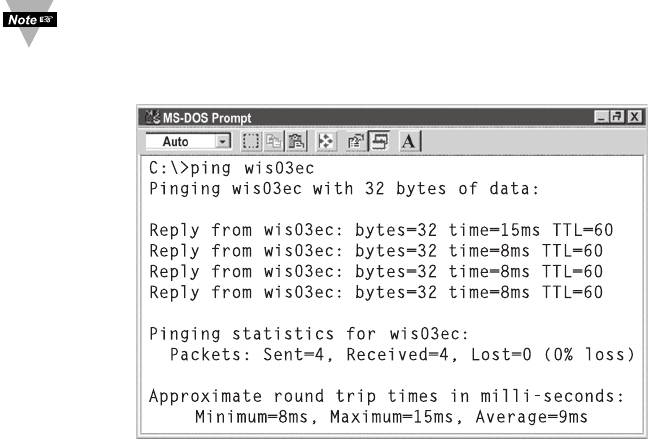
PART 4
NETWORK OPERATIONS
This Meter can be used and configured in several ways, depending on user’s
preference and network setup. It can be configured using a Web browser, like
Internet Explorer. It can also be configured using the iConnect Configuration
Software.
If DHCP and DNS servers are configured to exchange information, the
connection will be very simple. All you need to do is to enable DHCP on the
Meter (see Section 3.3) and use a straight through network cable to connect the
Meter to an Ethernet hub or switch and power it up. Now, you can use the
Meter’s default Host (Domain) Name, which is wisxxxx (where xxxx are the last
four characters of its MAC address) to access the Meter’s Web Server.
If DHCP is not the preferred method, you can configure your PC’s network
connection with an IP address of 192.168.1.x that is in the same range as the
Meter’s default IP address (192.168.1.200) and connect to the Meter using a
cross-over network cable between your PC’s network port and the Meter. After
you’re done with configuring the Meter, you can always set your PC back to its
original settings. See Section 3.5.2 for more details.
On your computer, from the MS-DOS Prompt window type "ping 192.168.1.200”
and press Enter. If DHCP and DNS servers are used type “ping wisxxxx”, where
xxxx are the last four digits of the Meter’s MAC address, located on the meter. You
should get a reply as shown in Figure 4.1.
You can use the host name (wisxxxx) instead of the IP address only if your
DHCP server is configured to communicate with your DNS. Please consult
with your IT department for details.
4.0 Testing the Connection
Figure 4.1 Pinging the Meter from MS-DOS Prompt
This proves that the connection is proper and you can get into configuration or
run mode using the Telnet or Web browser.
21
